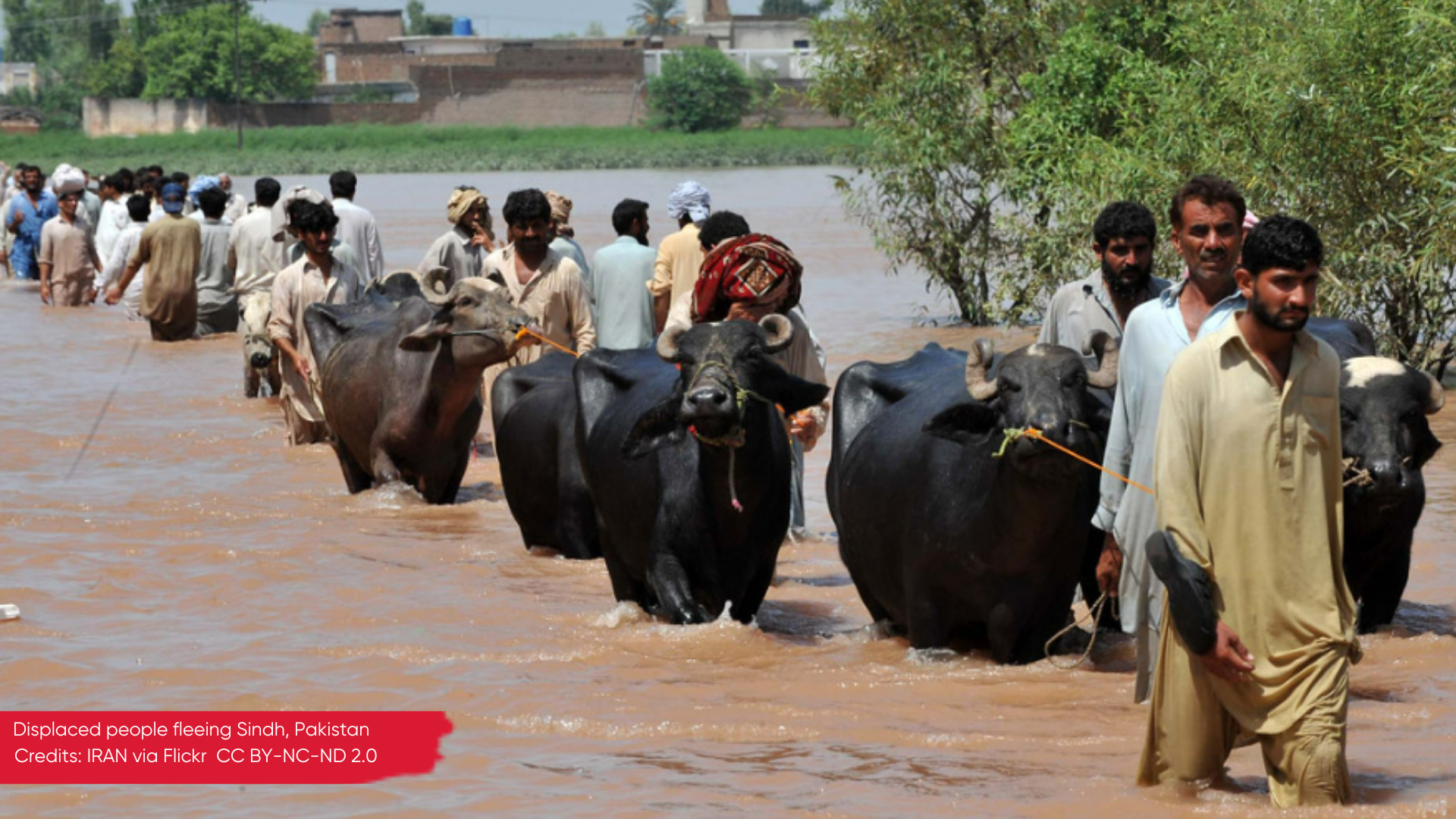The floods in Pakistan have had a horrifying impact — over 1,000 people dead and almost 33 million ‘displaced’, a simple word that couches the absolute devastation of people’s lives, homes, and everything they have worked for their whole life.
This is a climate change disaster, but it is not just about climate change. The Pakistan floods underscore incredibly well a fact that is now well established — natural disasters are not caused by nature, they are caused by humans (the UN has been saying this since the early 2000s and scientists since the 1990s). This is because of the way we choose to live and spend, and what we choose not to spend on. Disasters, such as the current Pakistan floods, are therefore a failure of governance on multiple levels.

No lessons learned
These floods are not unique in Pakistan. The country was terribly affected in 2010 and then again in 2011. There was very little time between the two to have learnt lessons. But there has now been a decade since the last devastation, and many expert opinions, such as this one from journalist Arifa Noor, suggest that no lessons have been learnt now either. This is the first failure of governance.
Economic crisis
Pakistan is now going to need lots of money to deal with this devastation, and lots will flow in too. Pakistani people are philanthropic and the global community has also been mobilised. However, the country itself is in the midst of an economic crisis that has required an IMF bailout and has made its economic survival dependent on tranche payments. Much of this has to do with a very low tax-GDP ratio, very high debt-GDP ratio, and a major trade deficit. All in all, production and exports are low, so the country spends more than the revenue it generates. This is not a new situation, and every government has pursued further loans rather than economic reform as a solution each time. The country has few resources to divert to this disaster, and if it does, it will sink further into debt. This is the second failure of governance.
Delayed action
There has also been delayed responses from the government. The devastation has continued for many days now and the floods began in mid-June but the formation of a new National Flood Response and Coordination Centre was announced as late as 29 August. It is not uncommon for governments to be slow to react. Back in 2005 in the immediate aftermath of the massive earthquake that struck the north of the country the government of the time was also slow: it took two days to create a military commission to coordinate relief work and two weeks to include civilians in decision-making. Luckily the NGO sector was quicker to respond: a group of 34 national and international NGOs came together to coordinate amongst them and with partners in the field, conducted rapid assessments within 24 hours and started rescue and relief operations (in some areas before the state). Many of these NGOs have now been restricted or thrown out of the country, based on a closing of civic spaces and the growing securitisation of governance. This is the third failure of governance.
Political polarisation
Underlying all this is the fourth failure of governance that is rarely connected to disasters or climate change — that of political polarisation and accountability. The links are easily drawn. Pakistan is a deeply polarised country with populist leaders. In April this year, ex-Prime Minister Imran Khan was removed through a vote of no-confidence. Both the new coalition government of Shahbaz Sharif and the opposition now led by Imran Khan have since focused on each other through corruption and terrorism charges rather than on the fact that there have been signs of an impending disaster at least since June.
Only this week, the chief ministers of the provinces ruled by the opposition did not attend the national flood emergency meeting called by the government to address the floods. Newspaper headlines, television channels, and social media feeds have similarly prioritised the political battles, scandals, and allegations. Pakistani voters need to hold their politicians to account, but this too is not possible in a polarised environment when what matters is not what is said, but who said it.
Global governance failure on climate mitigation
Despite all of the above, this has not just been a disaster of Pakistan’s making – “Since 1959, Pakistan has emitted about 0.4% of heat-trapping carbon dioxide, compared to 21.5% by the United States and 16.4% by China.” The world is interlinked and so a volcanic eruption in the north of Europe, a ship blocking the Suez canal, a subprime mortgage crisis in the USA, a war in Ukraine, or an unfettered industrial revolution 200 years ago that created an unsustainable culture of consumption, all impact us wherever we are. The larger ubiquitous fifth failure of governance is that of global governance and its inability to move faster on mitigating climate change.
The impact of the floods will be felt in Pakistan for a long time to come — in the loss of infrastructure, livelihoods, and crops, and in the implications for health and nutrition. The failures of governance above suggest that these issues will not receive the policy attention and resources that are required. Pakistan and the development community will need to think deeply about the governance crisis in the country, brought into tragic relief by the floods, to have a hope against climate crises that will keep coming.